Sleep apnea is a prevalent condition that disrupts breathing during sleep, leading to fragmented rest and potential health complications. While Continuous Positive Airway Pressure (CPAP) machines are commonly prescribed, they aren’t suitable for everyone due to discomfort or other reasons. Fortunately, several effective alternatives are available, many of which are highly rated and widely used by individuals seeking relief.
Understanding Sleep Apnea and Its Challenges
Obstructive Sleep Apnea (OSA) occurs when the muscles at the back of the throat relax excessively, causing airway blockage. This leads to interrupted breathing, frequent awakenings, and reduced oxygen levels in the blood. Common symptoms include loud snoring, daytime fatigue, and restless sleep. Addressing sleep apnea is crucial, as untreated cases can increase the risk of high blood pressure, heart disease, and stroke.
Exploring CPAP Alternatives
For those who find CPAP machines uncomfortable or impractical, several alternative treatments can effectively manage sleep apnea symptoms.
1. Oral Appliances
Mandibular advancement devices (MADs) are custom-made mouthpieces that adjust the position of the lower jaw and tongue to keep the airway open during sleep. These devices are particularly beneficial for individuals with mild to moderate OSA. Many users find them more comfortable and convenient than CPAP machines.
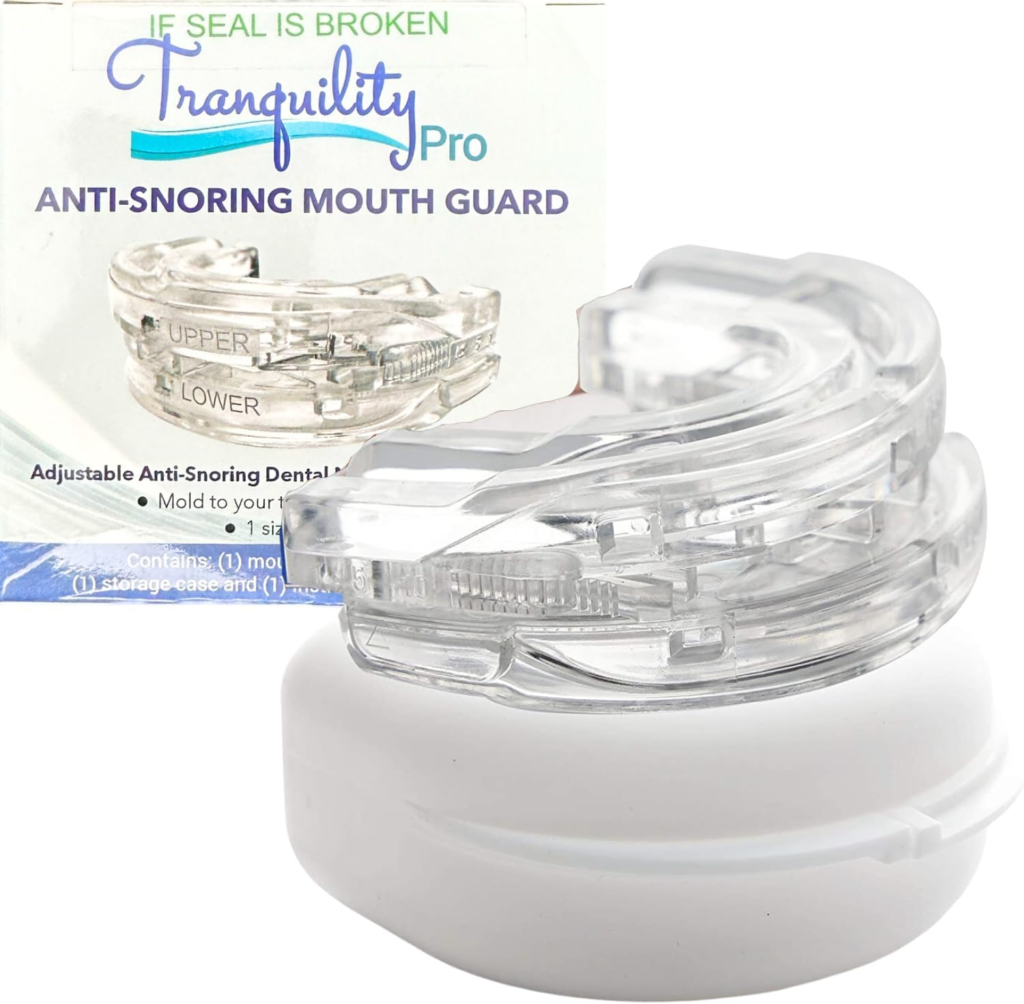
Product Recommendation: Tranquility PRO 2.0 Anti-Snoring Mouth Guard
This adjustable mouthpiece is designed to reduce snoring and improve sleep quality. With a custom molding feature, it ensures a comfortable fit for various mouth sizes. Highly rated by users, it’s a popular choice for those seeking non-CPAP solutions.
2. Positional Therapy
Some individuals experience sleep apnea primarily when sleeping on their backs. Positional therapy involves techniques or devices that encourage side sleeping, thereby reducing apnea episodes. Specialized pillows can aid in maintaining the desired sleep position.
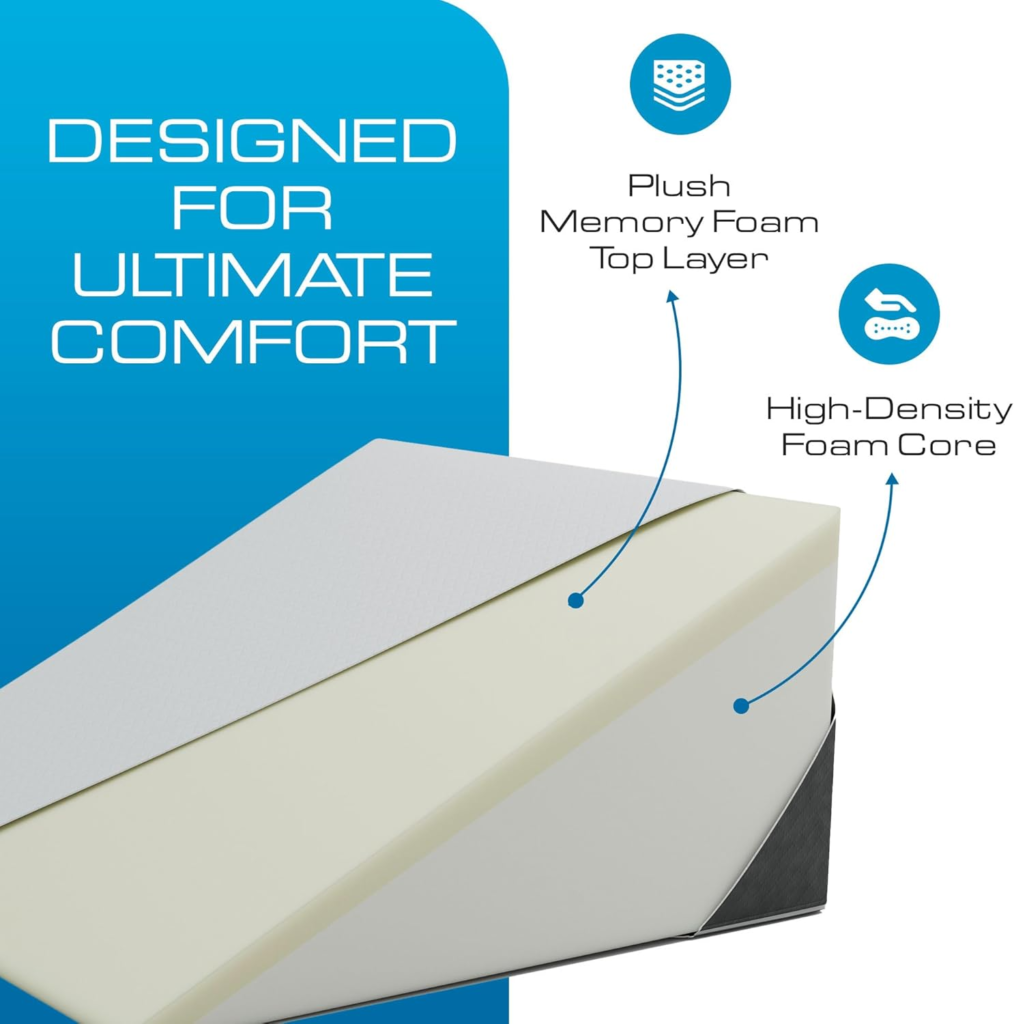
Product Recommendation: Kӧlbs Bed Wedge Pillow with Memory Foam
This wedge pillow elevates the upper body, promoting better breathing and reducing snoring. The memory foam layer adds comfort, and its design helps maintain side sleeping positions.
3. Nasal Dilators and Strips
For those whose sleep apnea is exacerbated by nasal congestion, nasal dilators or strips can help by improving airflow through the nasal passages. These over-the-counter options are non-invasive and easy to use.
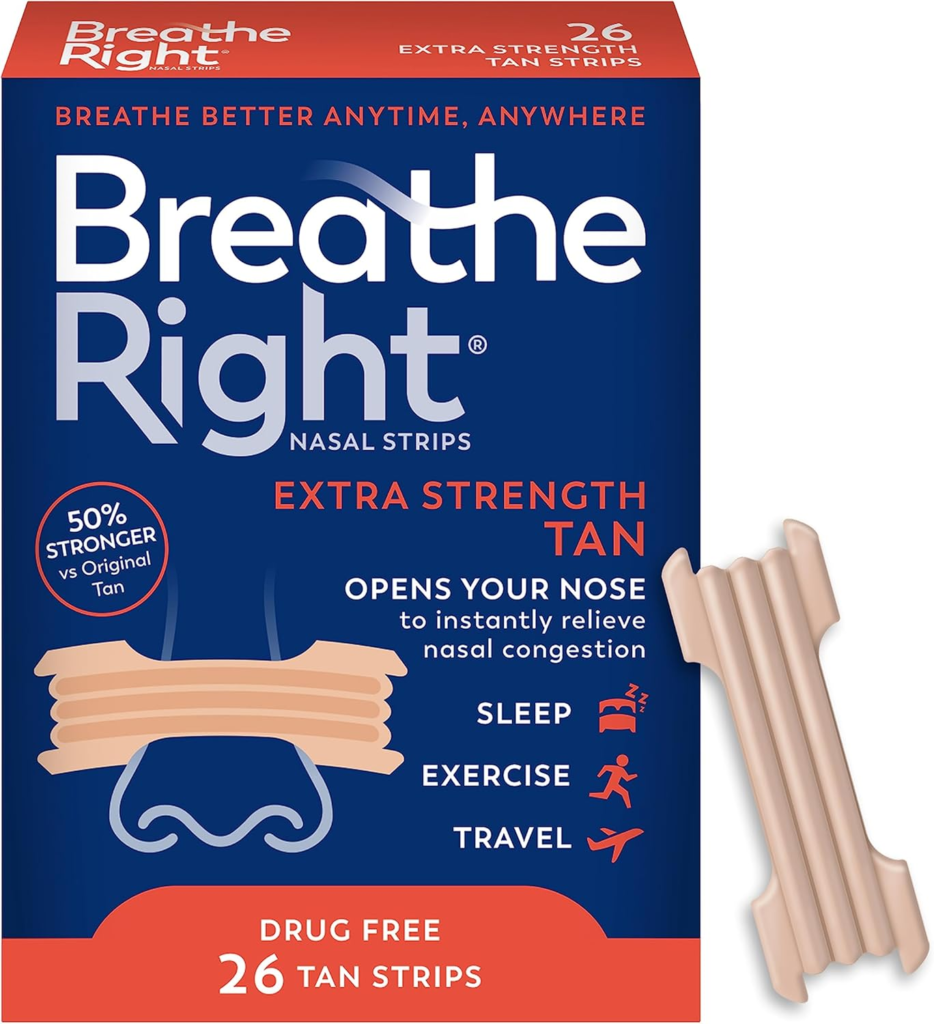
Product Recommendation: Breathe Right Extra Strength Nasal Strips
These clear, extra-strength strips are designed to open nasal passages, reducing snoring and improving breathing during sleep. They are drug-free and suitable for sensitive skin.
4. Lifestyle Modifications
Implementing certain lifestyle changes can significantly impact the severity of sleep apnea symptoms:
- Weight Management: Excess weight, especially around the neck, can obstruct airways. Losing even a small percentage of body weight can reduce apnea episodes.
- Exercise: Regular physical activity helps maintain a healthy weight and can improve sleep quality.
- Avoiding Alcohol and Sedatives: These substances relax throat muscles, increasing the likelihood of airway obstruction.
- Sleep Positioning: Elevating the head or sleeping on the side can prevent airway collapse. Using specialized pillows can assist in maintaining these positions.
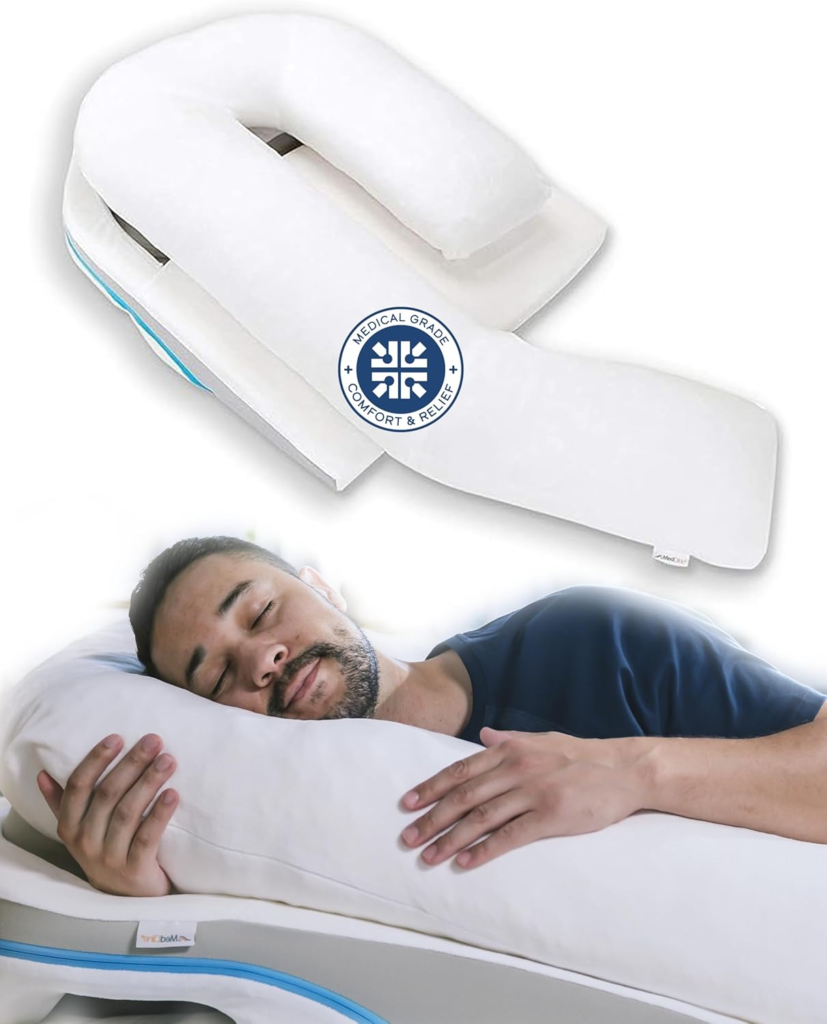
Product Recommendation: MedCline Shoulder Relief System
This system is designed to keep users sleeping comfortably on their side, reducing shoulder pressure and maintaining an open airway. It’s particularly beneficial for those with shoulder discomfort.
Taking the Next Steps
Exploring these alternatives can provide relief for those struggling with CPAP therapy. It’s essential to consult with a healthcare professional to determine the most appropriate treatment based on individual needs and the severity of the condition. Incorporating these solutions can lead to improved sleep quality and overall health.
Remember, managing sleep apnea effectively often requires a combination of treatments and lifestyle adjustments. By taking proactive steps and utilizing available resources, you can achieve restful sleep and reduce associated health risks.
Sleep Apnea Treatment Without CPAP: Effective Alternatives to Help You Sleep Better
Sleep apnea is a common yet serious condition where breathing repeatedly stops and starts during sleep. For many, Continuous Positive Airway Pressure (CPAP) machines are the go-to solution. However, they’re not suitable for everyone. Whether it’s discomfort, inconvenience, or cost, many people look for alternatives to manage their sleep apnea.
Luckily, there are several effective treatments available, many of which are comfortable, non-invasive, and easy to integrate into your nightly routine. In this article, we’ll explore these CPAP-free options and highlight highly-rated products available on Amazon to help you on your journey toward restful sleep.
Understanding Sleep Apnea: Why It’s Important to Treat It
Sleep apnea, particularly Obstructive Sleep Apnea (OSA), occurs when throat muscles relax excessively, blocking your airway. This can cause snoring, disrupted sleep, daytime fatigue, and even serious health risks like high blood pressure, heart disease, and diabetes if left untreated.
If CPAP isn’t working for you, don’t lose hope. Many alternatives provide relief without compromising comfort or lifestyle.
Alternative Treatments for Sleep Apnea
1. Oral Appliances: Custom Mouthpieces for Better Sleep
Oral appliances, such as mandibular advancement devices (MADs), are popular alternatives to CPAP. They work by repositioning your lower jaw slightly forward, preventing the airway from collapsing during sleep. These are often more comfortable and portable than CPAP machines, making them great for travel or everyday use.
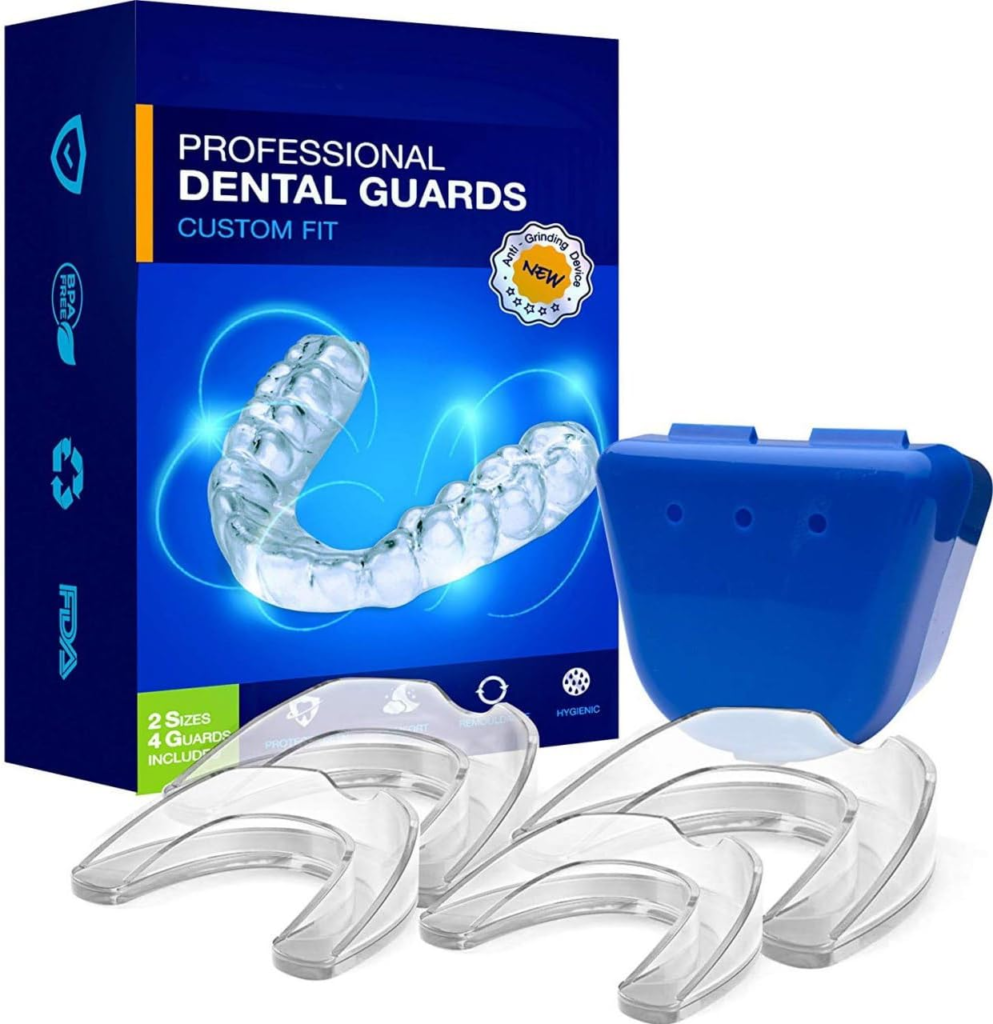
Product Recommendation: Neomen Professional Dental Guard
- This adjustable dental guard is easy to mold at home for a personalized fit. It’s designed to help reduce snoring and alleviate mild to moderate sleep apnea symptoms by keeping your airway open.
- Many users praise its comfort and effectiveness, especially as an affordable option compared to custom devices from a dentist.
2. Positional Therapy: Sleep in the Right Position
For some, sleep apnea occurs mainly when sleeping on their back. Positional therapy encourages you to sleep on your side or maintain a specific posture that keeps your airway open. Specialized pillows or wedges can help with this, offering a simple yet effective solution.

Product Recommendation: Cushy Form Bed Wedge Pillow
- This high-density memory foam wedge pillow helps elevate your upper body, reducing snoring and improving airflow. It’s versatile, easy to clean, and highly rated for both comfort and effectiveness.
- Perfect for people who snore more while lying flat or struggle with acid reflux during sleep.
3. Nasal Dilators and Strips: Improve Airflow Instantly
Nasal congestion can worsen sleep apnea by limiting airflow through your nose. Nasal dilators and strips are non-invasive options that physically open up your nasal passages, making it easier to breathe during sleep.
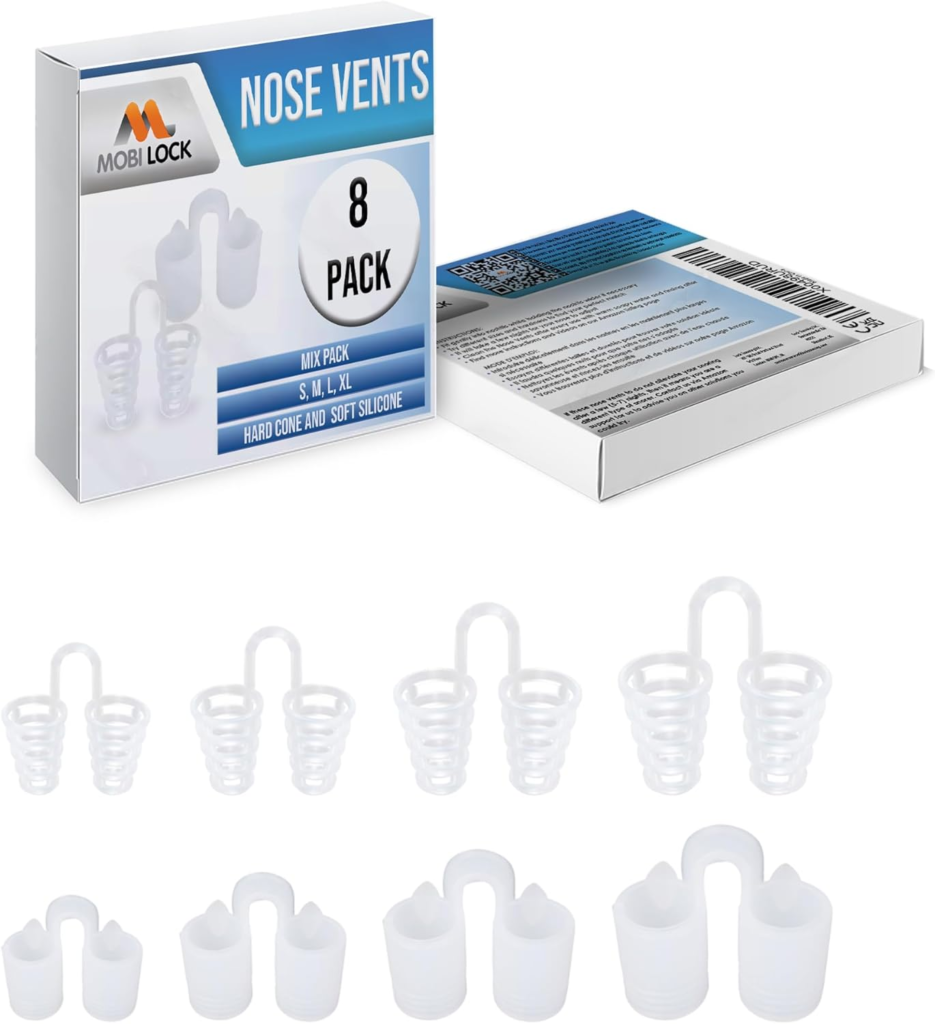
Product Recommendation: Mobi Lock Anti-Snoring Nasal Dilators
- These silicone nasal dilators are comfortable, reusable, and effective in reducing snoring caused by nasal blockage. The set comes with multiple sizes to ensure a perfect fit.
- Great for those who want a simple, drug-free solution to nighttime breathing issues.
4. Anti-Snoring Chin Straps: Keep Your Airway Open
Chin straps are designed to keep your mouth closed while you sleep, promoting nasal breathing and reducing snoring. They’re an excellent option for those who experience sleep apnea due to mouth breathing.
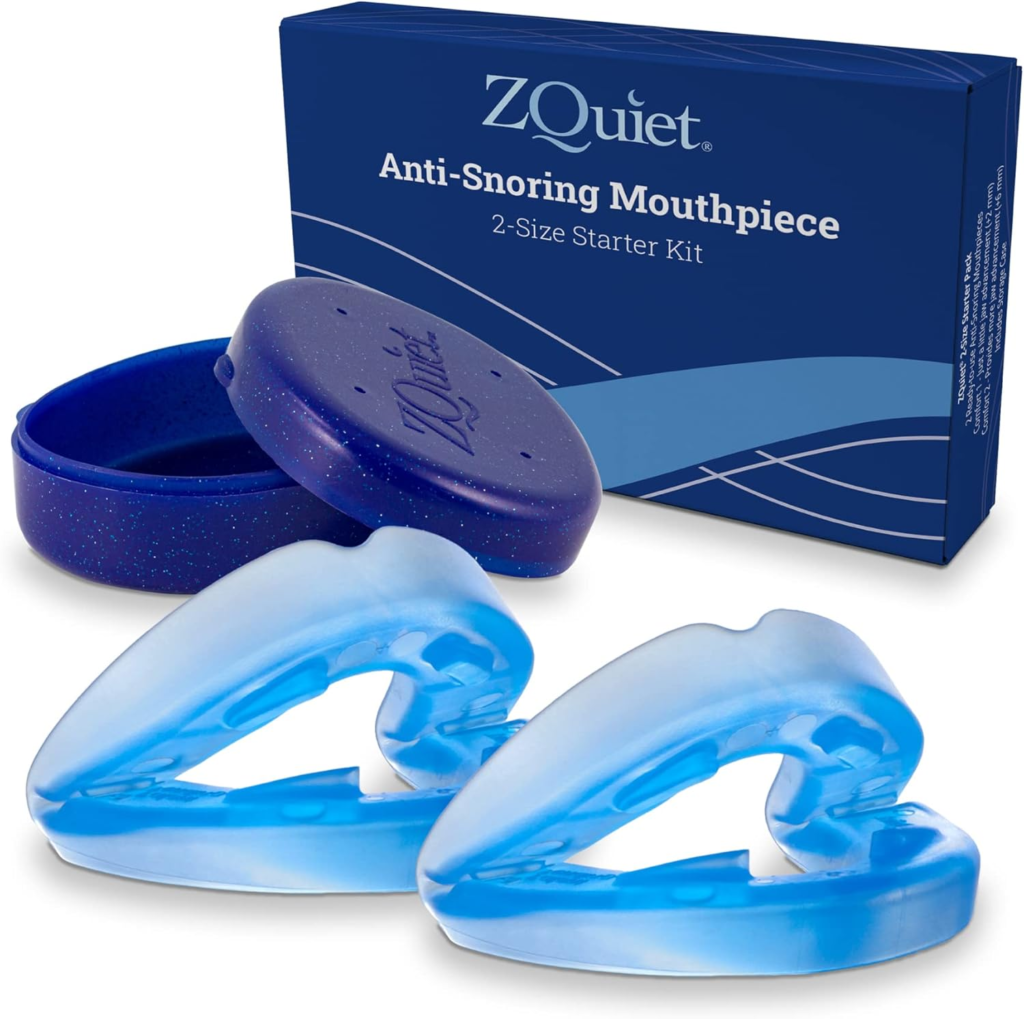
Product Recommendation: ZQuiet Anti-Snoring Chin Strap
- This lightweight and adjustable chin strap is made from soft, breathable material. It stays securely in place throughout the night and is easy to clean.
- Users appreciate its simplicity and effectiveness in preventing snoring.
5. Lifestyle Changes: Small Adjustments for Big Results
Making healthy lifestyle changes can significantly improve sleep apnea symptoms. While these might not replace other treatments, they can enhance your overall results:
- Weight Loss: Excess weight, particularly around the neck, can compress the airway. Losing even 10% of your body weight can make a noticeable difference.
- Exercise: Regular physical activity can improve sleep quality and tone the muscles around your airway.
- Avoid Alcohol and Sedatives: These substances relax throat muscles, increasing the risk of airway collapse.
- Establish a Sleep Routine: Going to bed and waking up at the same time each day can improve the quality of your rest.
To support these efforts, certain products can help you maintain a healthy sleep posture or encourage better habits.
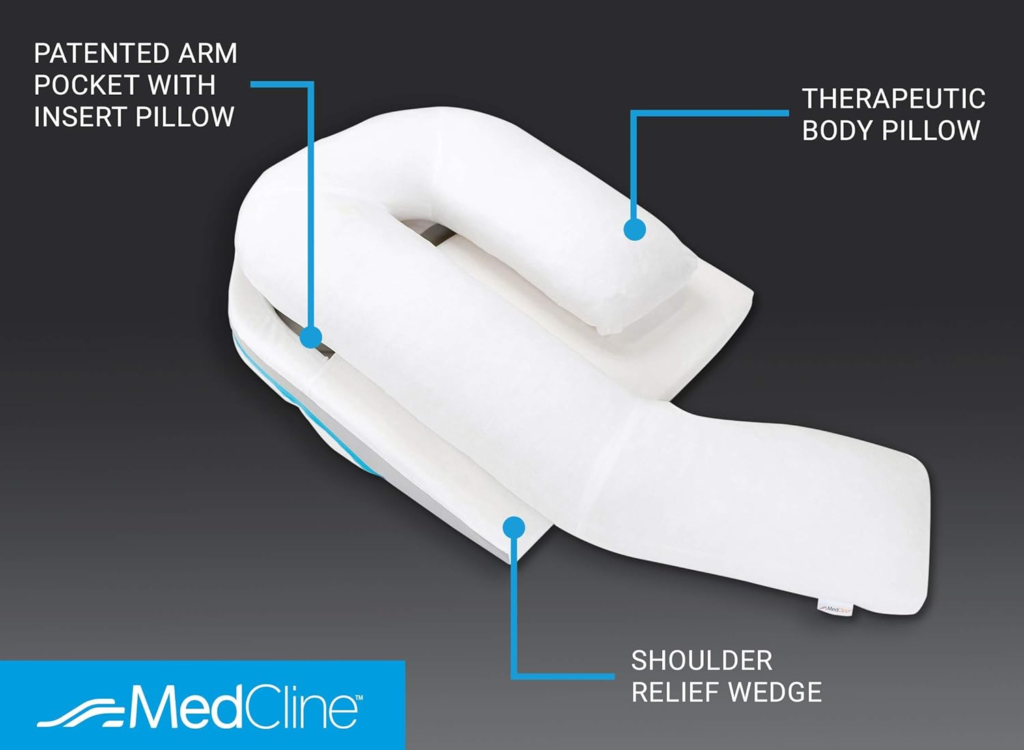
Product Recommendation: MedCline Shoulder Relief System
- Designed to promote side sleeping, this system combines comfort and functionality. It alleviates pressure on your shoulders while keeping your airway open.
- Ideal for people with sleep apnea who also experience shoulder pain or discomfort.
Other Helpful Tools and Accessories
Anti-Snoring Wearables
Wearable devices that monitor your sleep position and encourage better posture can also help. These are usually comfortable, discreet, and easy to use.
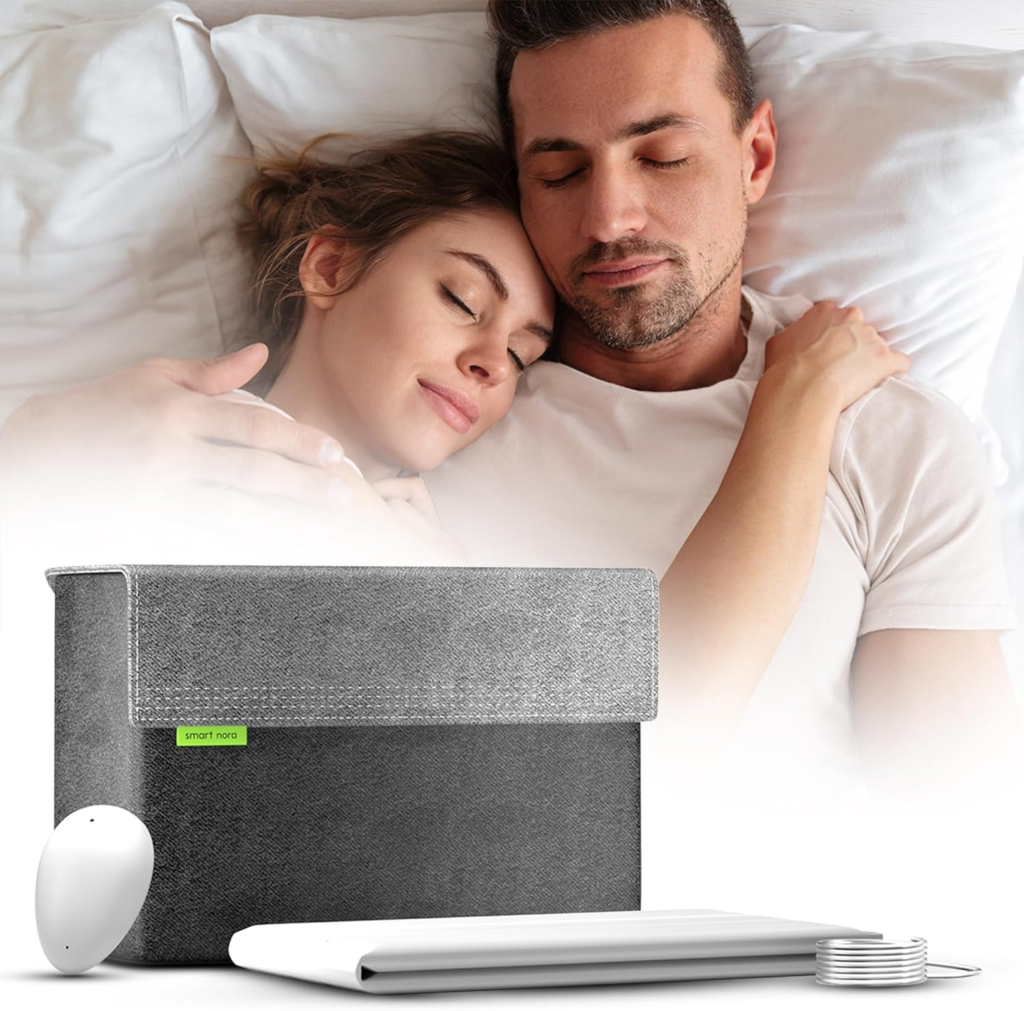
Product Recommendation: Smart Nora Anti-Snoring Device
- This innovative wearable detects snoring sounds and adjusts your sleeping position to reduce noise and improve airflow. It’s a non-invasive, tech-savvy option for people seeking alternatives to CPAP.
- A favorite for its effectiveness and minimal disruption during sleep.
Humidifiers and Air Purifiers
Dry air can worsen nasal congestion and snoring. Using a humidifier or air purifier can improve air quality in your bedroom, reducing irritation and enhancing your overall sleep environment.
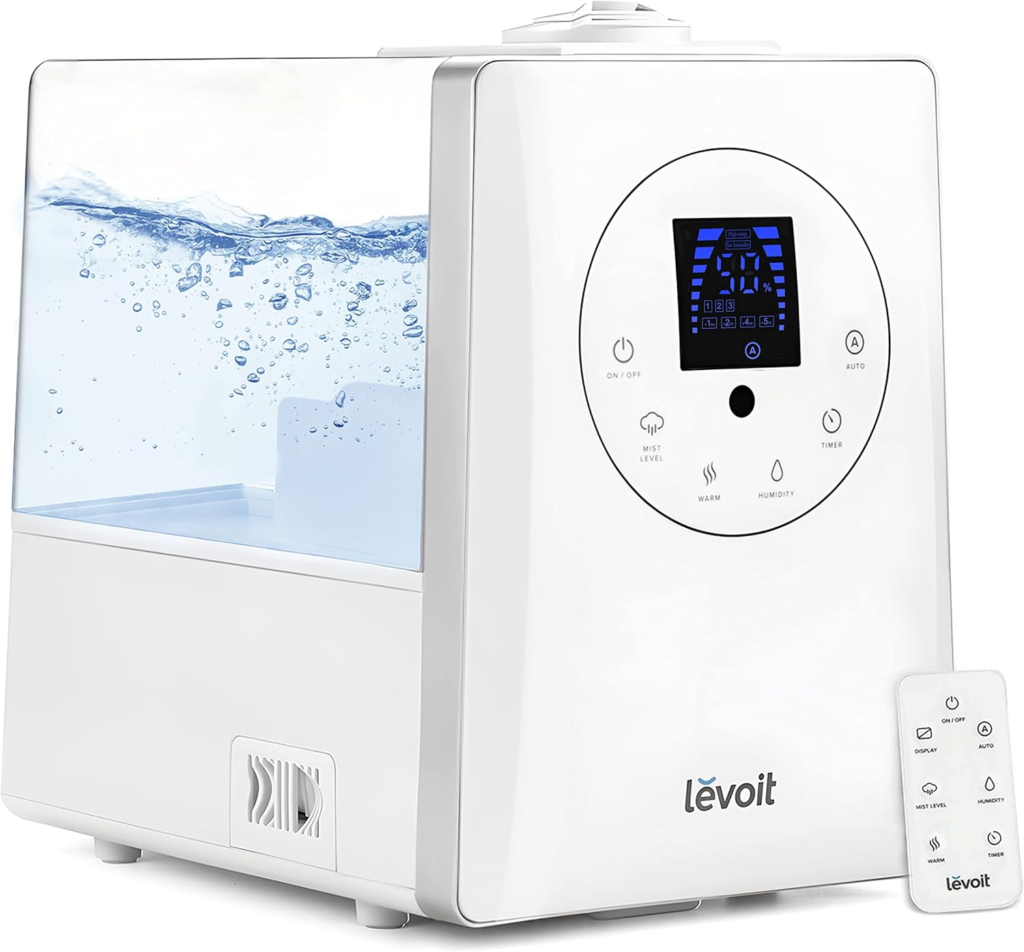
Product Recommendation: LEVOIT Ultrasonic Cool Mist Humidifier
- This whisper-quiet humidifier adds moisture to the air, making breathing easier during sleep. It’s particularly helpful for those who snore due to dry nasal passages.
- Highly rated for its ease of use, large capacity, and soothing features.
Taking Control of Your Sleep Apnea Journey
Sleep apnea doesn’t have to dictate your life or sleep quality. With the right combination of treatments and tools, you can manage your symptoms effectively without relying on a CPAP machine. From oral appliances and specialized pillows to nasal dilators and lifestyle changes, there are plenty of options tailored to your unique needs.
It’s important to consult a healthcare professional before starting any new treatment. They can guide you in choosing the best solution based on the severity of your condition and other health factors. Once you’ve explored these alternatives, you’ll be one step closer to restful, uninterrupted sleep.
Ready to make a change? Check out the recommended products above and take control of your sleep today!